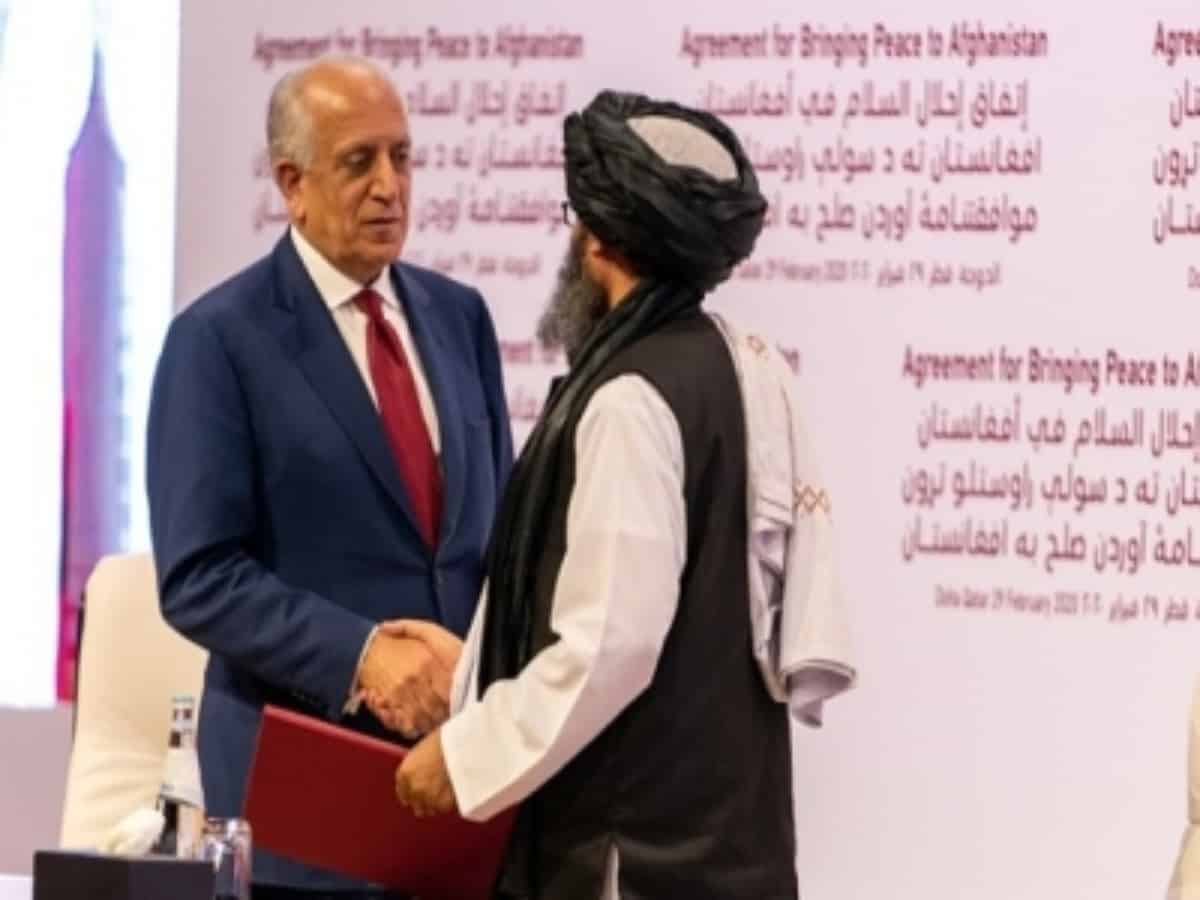New Delhi: The US has cut another deal with the Taliban. The group, keen to see the back of American forces form the Hindukush mountains, has complied with Washingtons request of not attacking the US embassy as its staff exits from Kabul. Similarities do exist, but Washingtons “Saigon moment”, when it had to quit under North Vietnamese fire in the seventies, may not be duplicated as dramatically as it did when South Vietnams capital fell to the communists.
The US special envoy on Afghanistan, Zalmay Khalilzad is in Doha attending conferences for the peaceful settlement in Afghanistan with the Taliban. According to various media reports, the American envoy has cut a deal with the Taliban that if the extremist group takes over the country’s government and ever wants to receive foreign aid, they will not attack the US Embassy in Kabul.
Khalilzad has been trying to convince Taliban leaders that the embassy must remain open, and secure, if the group hopes to receive American aid as part of a future Afghan government. The Taliban leadership told Khalilzad that they want to be seen as a legitimate government of Afghanistan.
They conveyed the same to representatives of Russia, China and other countries in Doha. However, few can take the Taliban at its face value.
According to the US media, China is ready to recognize the Taliban if Kabul falls.
The fall of Ghazni, capital of its eponymous province means that Taliban is just 150 kilometres from the capital of the country – Kabul. It now controls the most important highway connecting Kabul to the south of the country.
And this has apparently pushed put the US and its NATO allies into panic mode. According to AP, the Biden administration is rushing 3,000 troops to Kabul airport to support the US embassy evacuation.
“This is not abandonment. As we do for every diplomatic post in a challenging security environment, we will evaluate threats daily and make decisions that are in the interests of individuals serving at our Embassy about how to keep them safe,” State Department spokesman Ned Price said unconvincingly on Thursday, adding that the embassy “has been on ordered departure status since April 27.”
But he made sure that these troops were there to help process the departure of embassy personnel � not to get involved in the Afghan government’s war with the Taliban.
Britain’s ministry of defence said Thursday that it will send around 600 troops to Afghanistan on a short-term basis to help UK nationals leave the country. And Canadian special forces will deploy to Afghanistan to help Canadian staff leave Kabul.
“All I can say is right now, yes, the security situation is deteriorating. We do have contingency plans in place to make sure that our personnel are safe,” said Canadian defence minister Harjit Sajjan.
Meanwhile, a new US military assessment says, Kabul could fall to the Taliban within 90 days, and even as early as within a month.
China is seeing a great opportunity as after the US withdrawal, Afghanistan can further consolidate Beijing’s influence on the gates of South and Central Asia. The country is the target for expansion of the China-Pakistan Economic Corridor (CPEC), a flagship infrastructure project of China’s Belt and Road project.
In a clear attempt to pre-emptively restrain the Taliban, who are increasingly likely to seize power in Afghanistan, Beijing’s Ministry of Foreign Affairs has sent out a series of tweets calling for the Taliban to support peace and reconciliation in the country and to sever all ties with the East Turkistan Independence Movement (ETIM), a group that has historically fought for a separate state in the Uyghur region of Xinjiang.

